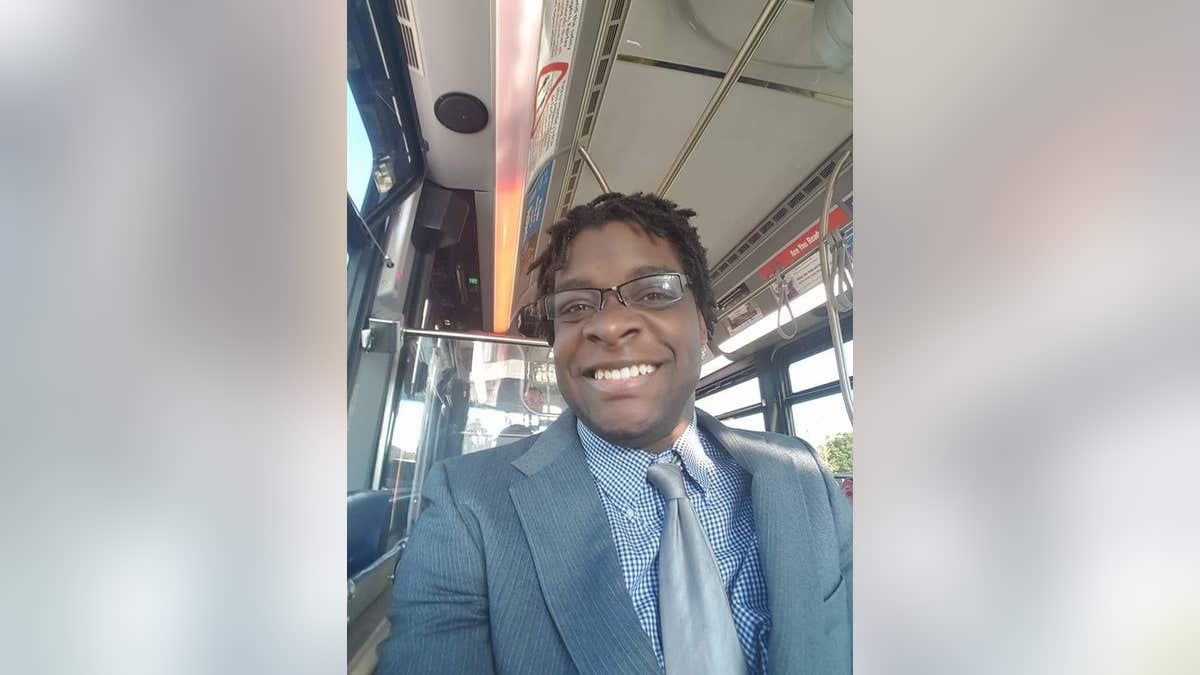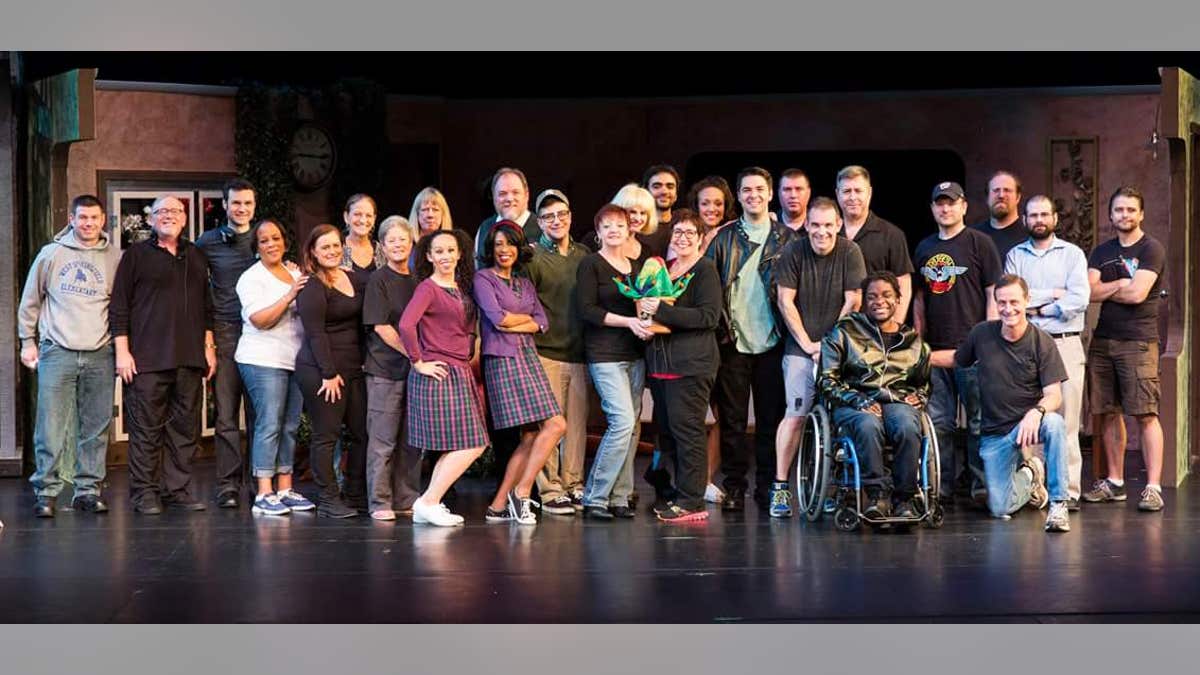
Washington resident D'Arcee Neal frequently uses public transportation. (Courtesy D'Arcee Neal)
Twenty five years after the passage of the Americans with Disabilities Act (ADA), D’Arcee Neal, a wheelchair-bound man with Cerebral Palsy, says more needs to be done—especially when it comes travel.
“From personal experience, I can tell you that the gate agents and attendants are not well-trained when it comes to helping people with disabilities,” Neal told FoxNews.com.
Last month, Neal was forced to crawl off a United flight after the cabin crew were delayed in providing him with an aisle-sized wheelchair to disembark. The carrier apologized to him and offered a $300 travel voucher.
After the story broke, Neal was again the victim and was attacked on social media by commenters charging he had made the story up for attention or simply staged the incident to get money.
“I remember one woman said something like ‘If he knew he had a disability, it was his fault for taking a transportation medium never built for him in the first place.’ Another guy said ‘I’m not trying to be mean but why is he flying on an airplane in the first place? Where’s his assistant?’”
Neal, who has been flying for over 10 years alone, laughed and added: “Assistants are expensive! I don’t have that kind of money.”
Despite the “humiliating experience,” Neal-- who recently started a job at the U.S. Department of the Interior-- sees the incident as a learning opportunity for airlines to raise the bar when it comes to serving special needs passengers—and educate the general public about people with disabilities.
“Since the incident with United, I have received dozens of messages from people who say they have been dropped, mishandled—one man even suffered a broken leg as a result of an incompetent contractor.”
He says the negative reactions from the public boils down to a lack of understanding about people with disabilities, and extends to how airlines employ ADA policies.
"I recognize they're running a business but corporations today are just doing the bare minimum," he says. "If the CEOs and people running these companies were disabled, I guarantee you these changes would have been made years ago."

An active performer in the local theater community, Neal recently wrapped up a stint playing Audrey II in The Arlington Player's production of "Little Shop of Horrors." (Courtesy D'Arcee Neal)
On his flight back to Washington, D.C. from San Francisco, Neal was seated in the middle of the plane—11 rows back from the aircraft exit. He pointed FoxNews.com to section 282.38 of the Air Carrier Access Act that stipulates airlines may block off select seating for passengers with disabilities—but says he has rarely seen the practice put into place.
He said it would be small thing that could have a big impact.
“The way the system is set up is so convoluted,” Neal says. If people requiring wheelchair assistance could be seated toward the front of the plane, he believes the boarding and deplaning process would be much faster. Neal says he has missed connecting flights in the past after being forced to wait for a wheelchair escort-- but never resorted to crawling.
He is also calling for better training of staff members throughout the entire airport—“from TSA to deplaning”—and says he has encountered many “clueless” individuals who had not been taught proper screening techniques for people in wheelchairs.
Though he says lawyers have approached him about going after United, Neal says he he's still exploring his options. He’s reached out on Twitter to United, American Airlines and Delta to get a conversation going but so far none of them have replied.
“Last year, there were over 27,000 complaints from people with disabilities about airline service so clearly the problem is not going away. This is only the beginning,” Neal says.
He has been encouraged by the dozens of positive responses from people who see hope on the horizon.
“I got a message on Facebook from a guy who had a daughter, Abby, who is seven years old and also has Cerebral Palsy. He told me ‘I didn’t know what her quality of life would be but when I saw you had a master’s degree from overseas and worked for NASA I realized she could have an amazing quality of life so I really appreciate what you’re doing’,” says Neal.
“I told him yes, the reason I’m doing this is to fight for people like your daughter so by the time she’s my age, this won’t even be a conversation.”








































